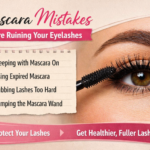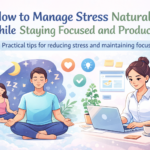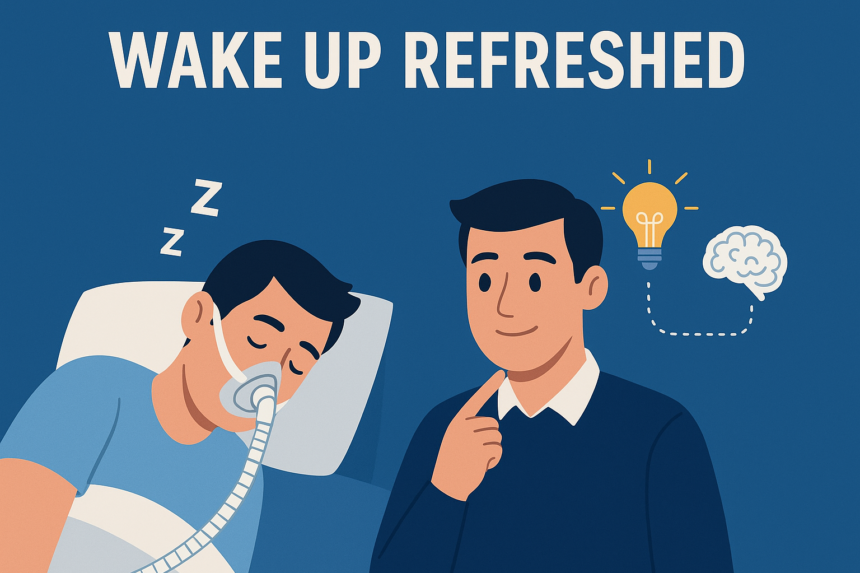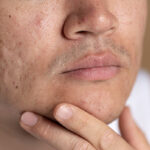Have you been waking up tired, foggy-headed, or unable to focus,despite spending 7–8 hours in bed? You might not be getting the quality sleep your brain needs. For millions of people, the culprit is an often-overlooked condition: sleep apnea.
Sleep apnea doesn’t just affect your nights,it impacts your memory, mood, energy, and mental clarity during the day. The good news? With the right approach, you can manage sleep apnea effectively and wake up refreshed with a sharper, more focused mind.
Let’s dive into what sleep apnea is, how it affects your brain, and,most importantly,how to take control of it.
What Is Sleep Apnea and Why Should You Care?
During the night, breathing regularly stops and starts due to a common sleep disease called sleep apnea. The most common type is Obstructive Sleep Apnea (OSA), where the muscles in your throat relax too much and block the airway. There’s also Central Sleep Apnea, which involves your brain failing to send signals to breathe.
Signs You Might Have Sleep Apnea:
- Loud, persistent snoring
- Gasping, choking, or pauses in breathing during sleep
- Waking up with headaches or a dry mouth
- Excessive daytime fatigue
- Difficulty concentrating or forgetfulness
- Mood changes like irritability or depression
You may not realize you have it until a bed partner notices the interruptions. But untreated sleep apnea can take a serious toll on your mental sharpness and even increase the risk of stroke, heart disease, and cognitive decline.
How Sleep Apnea Impacts Your Brain
When your breathing stops,even briefly,your body gets less oxygen, and your brain wakes up to kickstart breathing again. This cycle can happen dozens or even hundreds of times each night, preventing you from reaching the deep, restorative sleep stages (especially REM sleep).
Cognitive Effects of Poor Sleep Due to Sleep Apnea:
- Brain fog and slower thinking
- Poor concentration and attention span
- Short-term memory problems
- Difficulty learning new tasks
- Increased risk of anxiety and depression
Simply put: your brain can’t perform at its best if you’re not getting quality sleep.
How to Manage Sleep Apnea and Wake Up Refreshed
The good news? Sleep apnea is treatable. Here are effective strategies to help you manage it,and reclaim your energy and focus.
1. Get Diagnosed: Take a Sleep Study
The first step is getting a proper diagnosis through a sleep study (either at a clinic or via a home sleep test). This will track your oxygen levels, breathing, and sleep phases to determine whether you have sleep apnea.
Pro tip: Don’t self-diagnose. A sleep study gives you and your doctor a clear roadmap for treatment.
2. Use a CPAP Machine (The Gold Standard Treatment)
CPAP (Continuous Positive Airway Pressure) therapy is the most common and effective treatment for moderate to severe OSA. It works by delivering a constant flow of air to keep your airway open while you sleep.
Benefits of CPAP:
- Immediate improvement in energy and alertness
- Sharper focus and better memory
- Reduced snoring and nighttime awakenings
- Better heart health and oxygen levels
Some users feel more mentally sharp after just a few nights of consistent use.
3. Make Smart Lifestyle Changes
In many cases, especially with mild sleep apnea, healthy habits can significantly reduce symptoms.
Key changes to support better breathing and brain function:
- Lose weight: Extra weight around the neck can narrow the airway. Even small weight loss can help.
- Avoid alcohol and sedatives before bedtime,they relax throat muscles and worsen apnea.
- Quit smoking: Smoking inflames and damages airways.
- Sleep on your side: Back sleeping can worsen airway blockage. Try a body pillow to stay in position.
4. Improve Your Sleep Environment and Habits
Practicing good sleep hygiene enhances the quality of your rest,even with sleep apnea.
Sleep hygiene tips for deeper, brain-boosting rest:
- Stick to a consistent sleep schedule
- Keep your room dark, quiet, and cool
- Limit screen time before bed
- Avoid heavy meals and caffeine late at night
These small adjustments can help your brain enter deeper stages of sleep more easily.
5. Consider Oral Devices or Surgery (If Needed)
If you struggle with CPAP or have mild sleep apnea, ask your doctor about oral appliances. These custom-fitted mouthpieces reposition your jaw or tongue to keep the airway open.
In some severe or structural cases, surgery may be necessary to remove blockages (like enlarged tonsils or a deviated septum). Your sleep specialist will guide you.
Wakefulness Aids Like Modalert: Helpful or Harmful?
For some patients still experiencing daytime sleepiness,even while using CPAP,doctors may prescribe wakefulness-promoting medications like Modalert (Modafinil).
Modalert helps improve alertness and focus during the day but is not a substitute for CPAP or other treatments. It should only be used if you’re already managing the root cause of sleep apnea effectively.
Your Brain on Better Sleep: What You’ll Notice
Once your sleep apnea is under control, you may experience:
- Sharper thinking and faster decision-making
- Improved short-term memory
- Boost in productivity and learning
- Better emotional regulation
- Renewed energy throughout the day
Many patients describe it as “waking up to life again” after years of mental dullness and exhaustion.
FAQs: Managing Sleep Apnea for Better Mental Clarity
Q1. Can sleep apnea make you forgetful?
Yes, untreated sleep apnea interferes with memory consolidation and can cause forgetfulness, poor focus, and slow thinking.
Q2. How long does it take to feel better after starting CPAP?
Some people notice changes in a few days, while others need a few weeks of consistent use to feel fully refreshed.
Q3. Is sleep apnea reversible?
With weight loss and lifestyle changes, some mild cases can improve. Moderate to severe cases usually require ongoing treatment like CPAP.
Q4. Do I have to use CPAP forever?
Possibly, but this depends on your case. Discuss with your doctor if other options (like oral devices or surgery) may help reduce your dependence.
Q5. Is it safe to use Modalert for sleep apnea-related tiredness?
Yes, but only under medical supervision and when CPAP or other therapies are already in place. It’s meant to support,not replace,primary treatments.
Final Thoughts: Prioritize Sleep, Power Your Brain
Sleep apnea is more than just snoring,it’s a serious condition that can quietly rob you of energy, clarity, and cognitive function. But with proper treatment, you can take back control.
Don’t ignore the signs. If you’re waking up tired, struggling with focus, or feeling mentally drained, it might be time to get evaluated for sleep apnea.
Managing this condition means more than just sleeping better,it means thinking clearer, feeling more energized, and living smarter.







